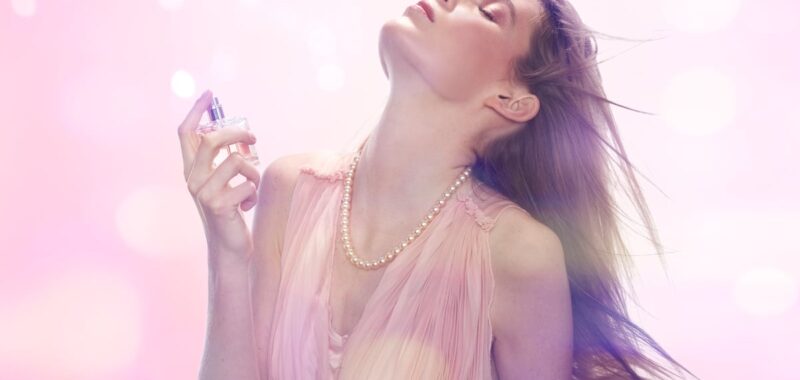
The global fragrance market is transforming significantly, driven by evolving consumer values and technological advancements. According to Statista, the global fragrance market is expected to reach $52.4 billion by 2025, fueled by demand for hyper-personalized products and sustainable practices.
Meanwhile, data from Circana’s 2023 Fragrance Consumer Report shows that 80% of fragrance users view scent as essential for mood enhancement, reflecting a broader shift toward wellness-focused fragrances.
We spoke to Avner Gal and Erin Berry, co-founders of iRomaScents, for their insights into how brands are responding to these trends by blending tradition with innovation to stay competitive in an ever-evolving market.
Revitalizing classic notes with modern twists
Nostalgic fragrances featuring timeless notes like rose and jasmine are making a comeback but with a contemporary edge. “Fragrance brands balance nostalgia with modernity by reimagining timeless notes like rose and jasmine with unexpected twists,” said Gal. “Surprising pairings such as smoky, spicy, or herbal undertones breathe new life into these classics, making them appealing to younger, adventurous audiences.”
This resurgence is primarily driven by Gen Z consumers, who seek fragrances that embody stories and traditions. Gal highlighted that younger buyers have significantly increased their fragrance usage—from 5% in 2022 to 83%—favoring vintage colognes from brands like Dior and Armani.
“Wearing a vintage fragrance is not just about the aroma; it’s about embodying a narrative that resonates with their values and aspirations,” he shared.
Sustainability: A new luxury standard
The demand for sustainable fragrances is reshaping the industry’s definition of luxury. Berry emphasized this shift’s dual challenges and opportunities: “Challenges include sourcing biodegradable materials, developing refillable packaging, and ensuring ethically sourced ingredients without compromising on quality or luxury appeal.”
However, brands that successfully incorporate sustainable practices will redefine luxury as ethical and environmentally friendly. “Eco-conscious consumers are driving this change,” said Berry. “Brands that align with these values will gain a competitive edge.”
The AI revolution: Hyper-personalization in fragrance
Advancements in AI technology are also transforming how consumers discover and experience fragrances. “Artificial Intelligence is no longer a futuristic concept; it’s a present-day reality that’s reshaping industries across the board,” said Gal. “When it comes to fragrance, AI is unlocking unprecedented opportunities for personalization, creativity, and efficiency.”
Tools like iRomaScents provide personalized scent recommendations by analyzing individual preferences and mood patterns. “Imagine a world where fragrance isn’t just a passive experience but an interactive and adaptive one,” Gal noted. AI-driven innovations are simplifying the fragrance selection process, increasing customer engagement, and offering data-driven insights to brands.
According to Gal, AI-powered platforms enhance consumer interactions through virtual scent simulations and interactive design workshops. For example, he illustrated, “our AI Wizard provides customers with credible recommendations to find the perfect, personalized option with sample spritzes along the way.”
Wellness-infused fragrances: The next frontier
Functional fragrances that blend aromatherapy with luxury are gaining traction as wellness continues to influence consumer choices. Berry highlighted that these scents serve more than just olfactory pleasure: “Wellness is becoming a core element in fragrance, with functional scents designed to reduce stress, improve focus, or energize users.”
By incorporating scientifically-backed ingredients such as lavender for relaxation or citrus for energy, brands can maintain luxury appeal while delivering therapeutic benefits. “Brands can ensure efficacy while maintaining allure by combining scientific research with high-quality ingredients, crafting fragrances that are both effective and indulgent,” Berry added.
Consumer values continue to shape fragrance trends
Individuality, environmental consciousness, and well-being are driving consumer behavior across demographics. “Gen Z, for example, uses fragrances as tools for mood enhancement and self-expression,” said Berry, citing Circana’s 2023 Fragrance Consumer Report. “Today’s consumers, regardless of age, are building ‘fragrance wardrobes’ that cater to specific moods—whether it’s the desire for adventure, relaxation, or nostalgia.”
Berry predicted that personalization, sustainable practices, and wellness-focused fragrances will remain dominant trends through 2025 and beyond.
“Manufacturers and suppliers must focus on adaptability, leveraging data analytics to predict trends and tailor offerings to evolving consumer needs,” Gal concluded.

